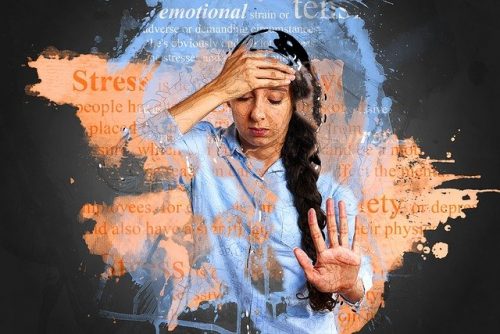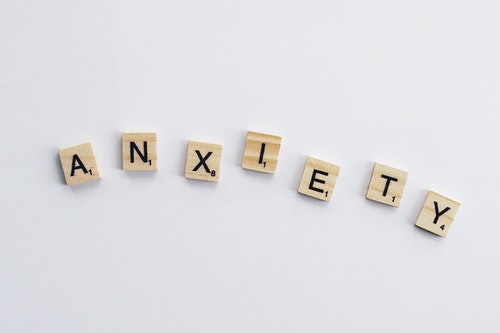Some events in our lives like work stress, breakups, and deaths make us feel anxious and down. For some people, these emotions are temporary; they may bounce back days after the incident. However, some get stuck in the negative emotion and find it hard to move on. Over time they get consumed by these thoughts and beliefs until it takes over their lives and relationships with other people.

Feeling an unexplained sadness that affects daily life can be a sign of anxiety and depression. These conditions may sound grim and hopeless, but several treatment methods can help ease such situations.
Medication can help improve mood, while therapy can help in understanding the condition. Therapists can also help develop healthy coping habits when triggers are present.
Anxiety and depression are not the only emotions that warrant a visit to a psychotherapist. Even irrational fear, or phobia, will benefit from therapy, especially if it affects your health and daily functions. Cognitive-behavioral therapy (CBT) and exposure therapy are the main types of treatment that help people with this condition.
Therapy can also improve the outcomes of people with schizophrenia, personality disorders, and dissociative disorders. A psychologist can help deal with addiction, sleeping problems, and eating problems. They may also use other psychodynamic and humanistic therapy techniques to improve their thoughts and behavior better.
There are several types of therapy, such as, career counseling or therapy, but the main differences are focus, philosophy, and techniques. For example, psychodynamic therapy focuses on the unconscious and motivation. Meanwhile, humanistic therapy emphasizes developing the individual’s maximum potential.
Are you researching the different types of therapy? Listed here are frequently asked questions to help you become familiar with the different types of psychological treatment and how these can help you.
What are the 3 types of therapy?
The three types of therapy include psychodynamic, which focuses on an individual’s emotional and thinking capacities. Behavioral therapy is working more on the actions and behaviors affecting someone’s life. Humanistic therapy aims to understand how the environment surrounding the patient may affect the psychological well-being.
What does a psychological therapist do?
A psychological therapist, more often called a psychotherapist, is a licensed medical practitioner. They are certified and specialized in diagnosing, evaluating, and treating mental health issues, specifically therapy. They may recommend one or a combination of the many therapy types to address the patient’s condition.
What are the 4 types of talk therapy?
Talk therapy refers to a type of therapy where the patient sits comfortably and shares a mental health professional conversation. The four most common types of talk therapy are cognitive-behavioral therapy, interpersonal therapy, counseling, and mindfulness-based cognitive therapy.
What is the most effective psychological therapy?
When it comes to the most effective psychological therapy, there is not a single type that physicians, researchers, and other medical professionals would recommend. The effectiveness of therapy varies for every individual. However, numerous studies have shown that among the most common therapy types, cognitive-behavioral therapy, or CBT, has the most efficacy in treating mental illnesses over the years.
What is the most common therapy?
Among the three types of therapy, there is a close match between psychodynamic and cognitive-behavioral therapy being the most commonly used treatment option. Psychodynamic therapy allows the therapy sessions to be person-centered, focusing on exploring someone’s thoughts and feelings. On the other hand, cognitive-behavior therapy shifts the focus on the individual’s actions affected by disturbing thoughts.
What is the difference between therapy and counseling?
While therapy and counseling share a common goal to treat a person’s problem, specifically a psychological one, these two have some differences. Therapy is usually a long-term treatment option, while counseling only lasts several weeks to a few months.
Counselling also often only targets one specific problem at a time, for example, alcohol abuse. Meanwhile, therapy is much more flexible and digs more in-depth to know more about the patient’s condition.

Do therapists diagnose?
As long as the therapists are licensed and certified, they can make a diagnosis and an assessment. However, they cannot prescribe any medications unless they have taken additional years of specialized training or education.
What can I expect from therapy for anxiety?
People who are thinking of undergoing therapy for anxiety expect that your therapist may also ask you to see a psychiatrist for medications. The goal of anxiety therapies is to help the patient understand the triggers of worries and what to do when that happens. So you can also expect that some of these therapies may expose you to anxiety-inducing situations and other activities.
What happens in a psychology session?
Psychology sessions may seem challenging, especially for first-timers. These sessions usually last an hour maximum but can be shorter or longer, depending on the patient’s need. Generally, your psychologist or therapist will ask you questions, some of which may feel like probing into your personal life but are essential.
How effective is psychological therapy?
The effectiveness of psychological therapy differs in each patient. However, research has found that psychological therapy as a treatment option immensely helps treat many mental disorders such as depression, anxiety, and other mood problems. Psychotherapy is recommended as it has fewer side effects and is more cost-effective in the long run compared to medication management.
What type of therapy is best for trauma?
For trauma-related psychological problems, the combination of pharmacotherapy or medication management and behavior therapy is found to work well for the condition. These two types of therapy are usually used for conditions such as post-traumatic stress disorder or PTSD.
What type of psychotherapy is best for anxiety?
Anxiety disorders are one of the most common psychological conditions many people suffer from today. Cognitive-behavioral therapy or CBT is the most common form of psychotherapy used to treat the disorder. Research suggests that it is also the best form because it also treats panic, fear, and worries.
How do I choose a good therapist?
Choosing a good therapist is a crucial part of therapy. You may start by going to a family doctor and asking for recommendations. You may also do some research online. You have to make sure that your therapist is licensed and certified. It will also be great to find someone who is specialized or an expert in your area of the problem.
What is an example of psychotherapy?
Psychotherapy is an umbrella term for all therapy types that discuss your mental problems with psychologists, psychiatrists, therapists, or other mental health practitioners. An example of psychotherapy is cognitive-behavioral therapy or CBT.
What type of therapy is best for dissociative identity disorder?
Like mentioned before, there is no single best therapy type, generally speaking. The type of therapy, especially for dissociative identity disorder, will depend on the condition’s progression. The treatment approach can range from psychodynamics, cognitive-behavioral therapy, family therapy, and creative therapy, including art or music therapy and even pharmacotherapy.

Emotional and mental health disorders severely impact the quality of your life. It takes away the joy from things you love, and it affects your relationship with other people. So if you notice the symptoms of these debilitating conditions, don’t lose hope because there are treatments available.
Therapy significantly improves thoughts and behaviors. In particular, the therapist can help identify where those triggering emotions come from. Sometimes, knowing its root cause can help you control your situation and how you react to them.
Moreover, the therapist can teach safe coping mechanisms to better deal with the situation. They can also help you identify your behavior patterns and make you more aware of how you interact with others.
Getting help also minimizes the risk for life-threatening complications that arise from your negative emotions. For example, fear of food or addiction impacts your physical health.
Meanwhile, bad thoughts may push you to try to hurt yourself. Once you begin to notice these unusual symptoms arise, it is best to look for a therapist that can help you. If you are scared to go on your own, ask someone, you trust to go with you on your first visit.
While therapy is often associated with mental health problems, it can also help with stress and emotional management. Additionally, seeking professional help may also strengthen your relationship with other people.
Lastly, always remember that help is available when you need it. Do not lose hope. You can and will get better, and a therapist can help you get there.